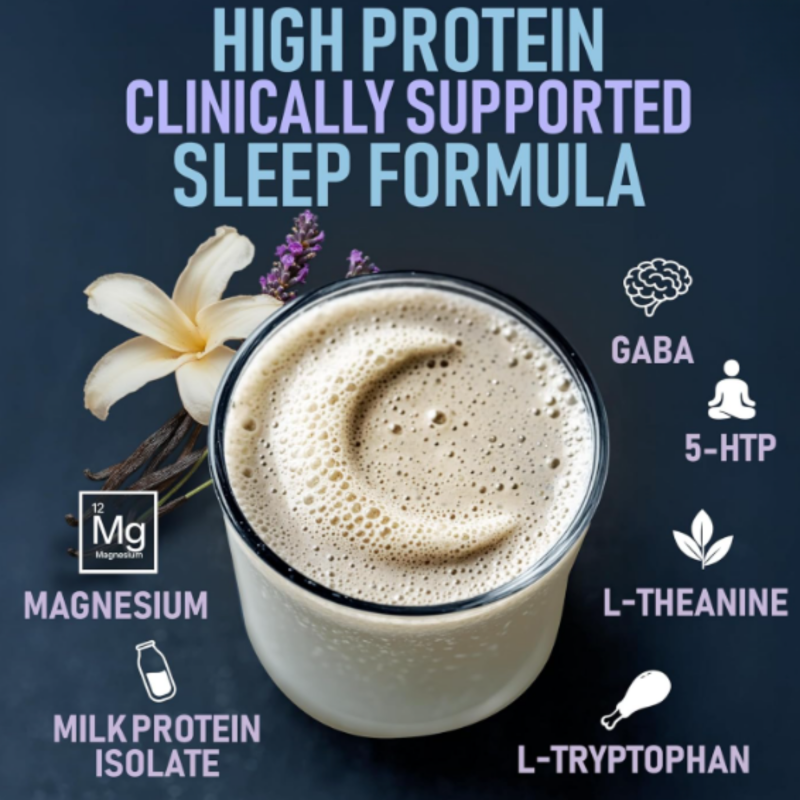
Why is sleep important?
Sleep is crucial for mental health—it’s not just about rest, but about restoration of your brain and emotional well-being.
Sleep is not a luxury — it’s a mental health necessity.
Aim for 7–9 hours of quality sleep a night, and treat it as seriously as diet or exercise for your mind and mood.
Benefits of high quality sleep
Emotional Regulation
- When you’re well-rested, you’re better able to handle stress, frustration, and emotional ups and downs. Lack of sleep makes you more reactive,
irritable, anxious, or even depressed. Without enough sleep, small problems can feel huge.
Brain Function and Focus
- Sleep improves concentration, decision-making, memory, and problem-solving. Without it, your brain can’t think clearly—which affects school,
work, and everyday life. Think of sleep as your brain’s “reset button".
Stress Recovery
- Sleep lowers the stress hormone cortisol. A good night’s sleep helps your body and mind recover from daily stress and emotional strain.
Poor sleep can create a vicious cycle—stress causes bad sleep, and bad sleep increases stress.
Mental Health Disorder Prevention
- Chronic sleep issues are linked to a higher risk of developing anxiety, depression, and other mental health disorders. In fact, insomnia is often
one of the first signs of a mental health problem. Getting regular, quality sleep is a powerful form of prevention.
Mood Boost
- Sleep supports the production of mood-regulating chemicals in the brain, like serotonin and dopamine. With enough rest, you're more likely to
feel calm, positive, and emotionally balanced.

What Is Metabolism?
Metabolism is the process by which your body converts the food and drinks you consume into energy. It’s happening 24/7—even when you’re resting. Your metabolism powers everything from breathing and circulation to digestion, hormone balance, and even cell repair.
At its core, metabolism has two main parts:
-
Catabolism – breaking down food into smaller molecules to release energy.
-
Anabolism – using that energy to build and repair tissues, muscles, and cells.
Your metabolic rate (how quickly your body burns calories for energy) can be influenced by several factors, including genetics, age, body composition, activity level, hormone balance, and even the quality of your sleep and stress levels.
In short: metabolism is your body’s engine, and supporting it through nutrition, movement, rest, and stress management is key to overall health and wellness.
How Sleep Affects Metabolism
Sleep and metabolism are deeply connected. When you don’t get enough quality rest, your body struggles to regulate the hormones that control hunger, energy, and fat storage.
-
Hormone Imbalance: Poor sleep increases ghrelin (the hormone that makes you feel hungry) and decreases leptin (the hormone that signals fullness). This can lead to overeating and weight gain.
-
Blood Sugar Control: Lack of sleep makes your body less sensitive to insulin, the hormone that moves sugar from your blood into your cells for energy. Over time, this can raise the risk of insulin resistance, diabetes, and metabolic syndrome.
-
Energy Use: When you’re tired, your metabolism slows down and your body tends to store more calories as fat instead of burning them for energy.
-
Cravings & Choices: Sleep-deprived brains crave quick energy sources (like sugar and refined carbs), which can lead to poor food choices and more metabolic stress.
In short, quality sleep is just as important as diet and exercise for a healthy metabolism. Getting 7–9 hours of restful sleep each night helps regulate hormones, balance blood sugar, and keep your energy steady throughout the day.
The Metabolic Health Effects of Poor Sleep
Not getting enough quality sleep does far more than just make you feel tired. Over time, sleep deprivation creates a ripple effect on the body’s ability to regulate energy, blood sugar, and hormones—all of which are central to metabolic health.
Causes a Higher Risk of Chronic Disease
Over the long term, ongoing sleep deprivation raises the likelihood of developing metabolic syndrome, obesity, heart disease, and type 2 diabetes.
Impaired Blood Sugar Regulation
-
Sleep loss reduces the body’s sensitivity to insulin, the hormone that helps move glucose into cells.
-
This means blood sugar stays elevated longer after meals, increasing the risk of insulin resistance and eventually type 2 diabetes.
Increased Appetite and Weight Gain
-
Poor sleep disrupts hunger-regulating hormones:
-
Ghrelin (hunger hormone) increases, making you feel hungrier.
-
Leptin (satiety hormone) decreases, so you feel less satisfied after eating.
-
-
This imbalance encourages overeating, particularly of high-calorie and sugary foods.
Slower Metabolism and Fat Storage
-
Sleep deprivation shifts the body toward energy conservation mode, meaning fewer calories burned at rest.
-
Cortisol (the stress hormone) also rises with poor sleep, signaling the body to store fat—especially around the abdomen.
Hormonal and Inflammatory Imbalance
-
Chronic poor sleep contributes to higher baseline levels of cortisol and inflammation, both of which are linked to metabolic syndrome and obesity.
-
It can also affect thyroid hormones, which play a role in regulating energy and metabolism.
Signs and Symptoms of a Slow Metabolism
When metabolism is sluggish, the body isn’t converting food into energy as efficiently. This can show up in how you feel day to day:
A slow metabolism often feels like low energy paired with frustrating changes in weight, mood, and digestion. Supporting metabolism through nutrition, movement, stress management, and good sleep can make a big difference.
-
Low Energy & Fatigue – even with enough sleep, you may feel drained or sluggish.
-
Difficulty Losing Weight – weight may creep up or plateau despite diet and exercise.
-
Mood Changes – low energy can contribute to irritability, stress, or mild depression.
-
Brain Fog – trouble focusing, concentrating, or remembering things.
-
Dry Skin & Hair Changes – slowed cell turnover can affect skin and hair health.
-
Bloating & Constipation – digestion often slows along with metabolism.
- Constant Coldness – feeling cold more often, especially in hands and feet.

Tips for better sleep quality
Stick to a Sleep Schedule
Go to bed and wake up at the same time everyday—even on weekends.
A consistent routine trains your body’s internal clock (circadian rhythm).
Bonus: It helps you fall asleep faster and wake up feeling more refreshed.
Get Natural Light During the Day
Exposure to sunlight—especially in the morning—helps regulate your sleep-wake cycle.
Limit Naps (If You Struggle with Night Sleep)
If you nap, keep it under 30 minutes, and avoid napping late in the day.
Clear Your Mind
If you’re lying in bed with racing thoughts, try:
- Journaling: Write down your worries or to-do list to get them off your mind.
- 4-7-8 Breathing: Inhale for 4→hold for 7→exhale for 8 seconds. Repeat.

Sleep Hygiene
Limit Screen Time Before Bed
Avoid phones, tablets, or TV at least 30–60 minutes before sleep.
Blue light from screens interferes with melatonin (the sleep hormone).
Try reading a book, stretching, or journaling instead.
Watch What You Eat & Drink
Avoid caffeine (coffee, soda, energy drinks, chocolate) at least 6 hours before bed.
Skip heavy meals or spicy food late at night.
Avoid alcohol—it might make you drowsy but reduces sleep quality.
Create a Calming Bedtime Routine
Do something relaxing before bed: deep breathing, meditation, light stretching, or taking a warm bath.
Avoid stressful conversations, news, or intense thinking right before sleep.
A calm routine signals to your brain:“It’s time to wind down.”
Make Your Sleep Environment Comfortable
Keep your room cool, dark, and quiet.
Use blackout curtains, a fan, or white noise if needed.
Make sure your mattress and pillows are supportive and cozy.
Better sleep doesn't happen overnight (pun intended!), but with consistent habits, your brain and body will start to adapt —
improving your energy, focus, and mood.





Add comment
Comments